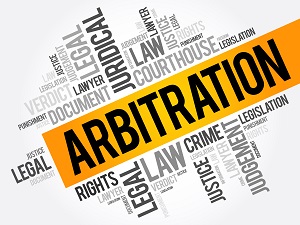By Eric D. Morton
I am often asked about arbitrating disputes. Clients often ask whether or not to arbitrate a dispute in progress, or whether or not to include an arbitration clause in a contract. This is ultimately a business decision. There are pros and cons to arbitrating a dispute versus litigating it in court. (For the purposes of this article, I am discussing binding arbitration and not non-binding arbitration. Non-binding arbitration is rare these days. In the past, non-binding arbitration was commonly used by the courts as means of settling cases).
Pros
- Finality. Binding arbitration is final. Once an arbitrator makes an award, no party can appeal. The winning party can take the award to the Superior Court and have the court enter the award as a judgment. Many persons desire this finality, particularly for routine business litigation cases.
- Privacy. If a contract calls for disputes to be arbitrated, the parties do not need to file a complaint with a court – which is a public record. The parties can submit the matter to arbitration and litigate the matter privately. Many parties appreciate the privacy, although there are limitations to the privacy of the proceedings.
- Speed. Generally, speaking an arbitration can be decided quicker than a lawsuit in court. The arbitrator can schedule discovery and a hearing, and issue an award in considerably less time than a lawsuit can go to trial.
Cons
- Finality. See 1. above. There are almost no grounds to prevent the award from being entered as a judgment and there are almost no legal grounds for appeal. California law is strict on this point. The arbitrator can give an award that is contrary to the evidence and the law but those are not grounds for overturning the award. The only grounds for overturning an arbitration award is if the arbitrator was corrupt or violated an public policy in making the award (e.g. ruling for one party over the other party on the basis of race).
- Expense. The parties must pay the arbitrator and arbitrators are not cheap. Most arbitrators work through organizations such as the American Arbitration Association (AAA) or the Judicial Arbitration and Mediation Service (JAMS) and charge considerable money to arbitrate the case.
- Suitability. Some disputes are not suitable for arbitration. If a party needs injunctive relief or seeks to attach property then that party will need to go to court. A party can obtain such relief while going through the arbitration process but this can be expensive and procedurally complicated. Small cases are often better suited for small claims court or a limited jurisdiction case.
Whether or not to write an arbitration clause into a contract depends on the nature of the contract and the business goals of the parties. One should carefully consider the effect of arbitration before writing it into an agreement. Parties already in a dispute should carefully consider whether or not to submit to binding arbitration.
Eric D. Morton is the principal of Clear Sky Law Group, P.C. He can be reached at 760-722-6582, 510-556-0367, and emorton@clearskylaw.com.


